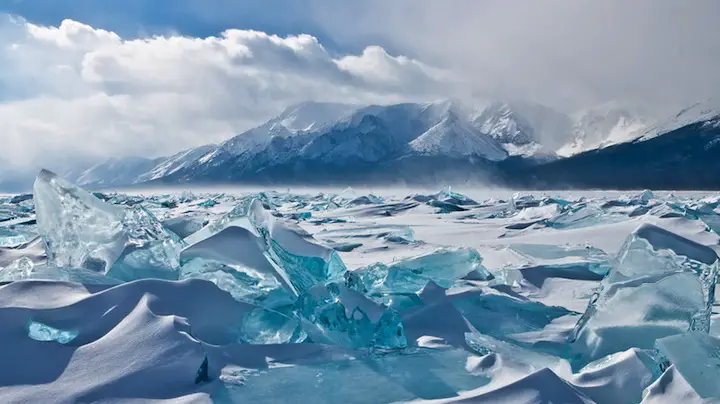Here’s a hypothetical for you: You’re given the opportunity to somehow stand before a black hole in space and find out where it might lead. Would you take the leap? And if you did manage to work up your courage, what exactly would happen when you entered that giant void in the universe where even light can’t escape?
 (Via NASA/Wikimedia Commons)
(Via NASA/Wikimedia Commons)
Professor Richard Massey of Durham University notes that as much as we do know about the cosmos, we don’t exactly have all of the data when it comes to black holes. So where would you go if you fell into a black hole? Massey notes:
“Who knows? Falling through an event horizon is literally passing beyond the veil — once someone falls past it, nobody could ever send a message back. They’d be ripped to pieces by the enormous gravity, so I doubt anyone falling through would get anywhere.”
Ripped to pieces? That’s not exactly what anyone wants to hear. But it does fit into the facts we have regarding the mystery of black holes.
Back to Einstein
Most physicists agree that Albert Einstein’s general theory of relativity predicted black holes because they link space-time with gravity. That has direct implications for the death of stars, according to Live Science:
“It has been known that black holes result from the death of a massive star leaving behind a small, dense remnant core. Assuming this core has more than roughly three-times the mass of the sun, gravity would overwhelm to such a degree that it would fall in on itself into a single point, or singularity, understood to be the black hole’s infinitely dense core.”
 Black hole Cygnus (Via Wikimedia Commons)
Black hole Cygnus (Via Wikimedia Commons)
So what does a zero gravity force such as found in a black hole mean for the human body? Nothing good, that’s for sure, Professor Massey says:
“According to Massey, tidal forces would reduce your body into strands of atoms (or ‘spaghettification’, as it is also known) and the object would eventually end up crushed at the singularity. The idea that you could pop out somewhere — perhaps at the other side — seems utterly fantastical.”
So much for traveling at unheard of speed across the universe via a black hole. Back to the drawing board.
Wormhole Anyone?
Let’s abandon our hopes of using a black hole for any productive purpose and focus instead on a wormhole. Would that work?
Some in the scientific community have suggested that black holes could actually be wormholes to other galaxies, and Einstein himself explored the possibility:
“Einstein teamed up with Nathan Rosen to theorise bridges that connect two different points in space-time in 1935. But it gained some fresh ground in the 1980s when physicist Kip Thorne — one of the world’s leading experts on the astrophysical implications of Einstein’s general theory of relativity — raised a discussion about whether objects could physically travel through them.”
 Simulation of the Einstein-Rosen bridge (Via J.Gabás Esteban/Flickr)
Simulation of the Einstein-Rosen bridge (Via J.Gabás Esteban/Flickr)
Problem is, it’s not even certain that there’s a such thing as wormholes, according to American theoretical physicist and Nobel laureate Kip Thorne:
“We see no objects in our universe that could become wormholes as they age.”
Black hole/White hole
Maybe black holes lead to white holes. That’s a theory that gained traction in the 1960s when Russian cosmologist Igor Novikov first mentioned it. Here’s how that works:
“Novikov proposed that a black hole links to a white hole that exists in the past. Unlike a black hole, a white hole will allow light and matter to leave, but light and matter will not be able to enter.”
 (Via YouTube)
(Via YouTube)
But there are problems with this idea, too. We know that black holes die, but we aren’t sure if they become white holes or if white holes are merely the opposite of a black one.
Going Nowhere Fast
All of this speculation leads us back to where we began in many ways: Black holes don’t lead anywhere, and even if they did, you would never live to see the other side.
Physicists Ahmed Almheiri, Donald Marolf, Joseph Polchinski, and James Sully expanded on work done by Stephen Hawking and came up with a compelling idea:
“They worked on a theory that became known as the AMPS firewall, or the black hole firewall hypothesis. By their calculations, quantum mechanics could feasibly turn the event horizon into a giant wall of fire and anything coming into contact would burn in an instant. In that sense, black holes lead nowhere because nothing could ever get inside. “
But that theory directly violates the general theory of relativity.
There’s really no answer to the question of where you go if you do fall into a black hole, and the black holes in the universe have refused to yield a response, so we’ll just have to keep looking, exploring, and theorizing.
The Milky Way’s black hole is the subject of this video:
Featured Image Via Pixabay

 Movie
Movie 2 months ago
67
2 months ago
67 






![Presidents Day Weekend Car Sales [2021 Edition] Presidents Day Weekend Car Sales [2021 Edition]](https://www.findthebestcarprice.com/wp-content/uploads/Presidents-Day-Weekend-car-sales.jpg)



 English (United States)
English (United States)